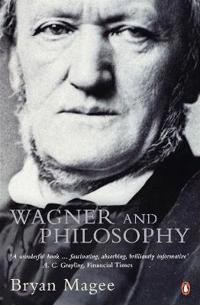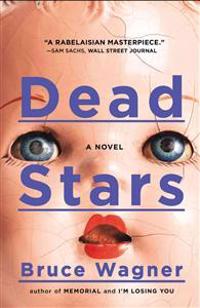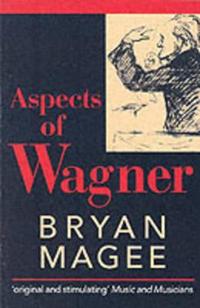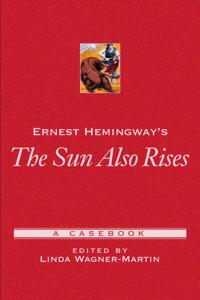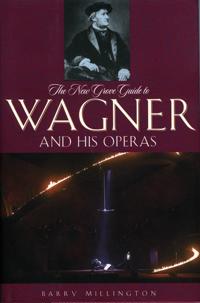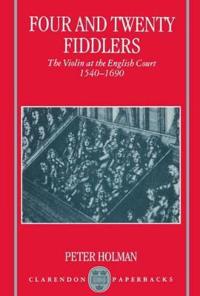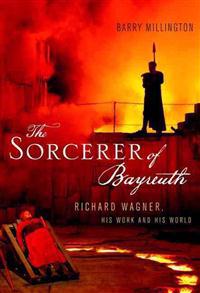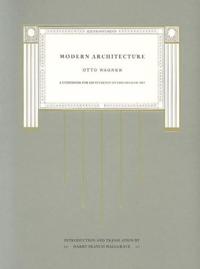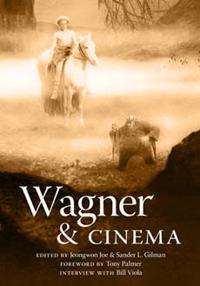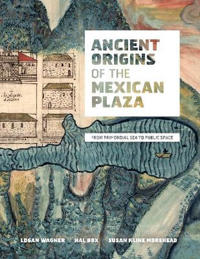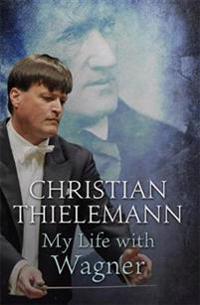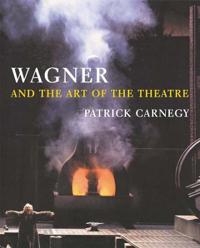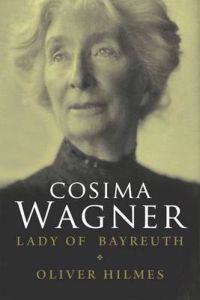Wagner and Philosophy (Storpocket)
avBryan Magee
ISBN: 9780140295191 - UTGIVEN: 200109Wagner was one of the few major composers who studied philosophy seriously. Bryan Magee places the composer's artistic development in the context of the philosophy of his age, and gives us the first detailed and comprehensive study of the close links between Wagner and the philosophers - from the pr[...]
Dead Stars (Häftad)
avBruce Wagner
ISBN: 9780142196878 - UTGIVEN: 201307""Dead Stars" is the "London Fields" of Los Angeles, the "Ulysses" of TMZ culture--an immensely literate, fearsomely interior novel about people who are neither." --Tom Bissell, "GQ "
At age thirteen, Telma is famous as the world's youngest breast cancer survivor until threatened with obscurity[...]Aspects of Wagner (Storpocket)
avBryan Magee
ISBN: 9780192840127 - UTGIVEN: 198809An analysis of Wagner, his music, stage directions, prose and his influence on the culture of our age, with a discussion of the reasons for the reactions his work has provoked. Magee sheds light on Wagner's anti-semitic ideas and the way these were used by the Nazis for their own ends.[...]
Ernest Hemingway's the Sun Also Rises (Pocket)
avLinda (EDT) Wagner-Martin
ISBN: 9780195145748 - UTGIVEN: 2002-01Still the most popular book of Hemingway's to teach, The Sun Also Rises captures the quintessential romance of the expatriate Americans and Britains in Paris after World War I. As the international vacationers move from Paris to Pamplona for the bullfight festival, the characters wend their various[...]
Yellowstone's Destabilized Ecosystem: Elk Effects, Science and Policy Conflict (Inbunden)
avFrederic H. Wagner
ISBN: 9780195148213 - UTGIVEN: 2006-06-08Tragic and the Ecstatic, The: The Musical Revolution of Wagner's Tristan und Isolde (Inbunden)
avEric Chafe
ISBN: 9780195176476 - UTGIVEN: 2005-06-01The New Grove Guide to Wagner and His Operas (Häftad)
avBarry Millington
ISBN: 9780195305883 - UTGIVEN: 2006-10The most controversial musical figure of the 19th century, Wagner was a great literary, philosophical, and political activist whose contribution to the development of German Romanticism was unrivalled by any of his contemporaries. His life and works may be said to crown the musical achievements of G[...]
Wagner's "Das Rheingold" (häftad)
ISBN: 9780198166030 - UTGIVEN: 1996-03Richard Wagner's opera Das Rheingold is a milestone in the composer's outlput and in the history of music in general. It marked Wagner's return to operatic composition after a hiatus of five years, and signified his definitive break with earlier operatic conventions. it also represents a reconsidera[...]
Marriage, Property, and Law in Late Imperial Russia (Inbunden)
avWilliam G. Wagner
ISBN: 9780198204473 - UTGIVEN: 1994-10-13The Origins Of Evolutionary Innovations (Pocket)
avAndreas Wagner
ISBN: 9780199692606 - UTGIVEN: 2011-07-14Every organism has visible, macroscopic traits that represented dramatic, transformative innovations when they first arose, changing not only organismal lifestyles, but also the future evolutionary path of life. This book provides the first major synthesis of existing knowledge that will form the ba[...]
The Sorcerer of Bayreuth: Richard Wagner, His Work and His World (Inbunden)
avBarry Millington
ISBN: 9780199933761 - UTGIVEN: 201210Richard Wagner (1813-1883) is one of the most influential - and also one of the most controversial - composers in the history of music. Over the course of his long career, he produced a stream of spellbinding works that challenged musical convention through their richness and tonal experimentation, [...]
Tristan's Shadow: Sexuality and the Total Work of Art After Wagner (Inbunden)
avAdrian Daub
ISBN: 9780226082134 - UTGIVEN: 2013-12-03Modern Architecture (Häftad)
avOtto Wagner
ISBN: 9780226869391 - UTGIVEN: 1989-01This series offers a range of heretofore unavailable writings in English translation on the subjects of art, architecture, and aesthetics.Wagner's manifesto is a plea for an end to architectural eclecticism and for a more rational approach to design suited to contemporary life.[...]
Richard Wagner (Inbunden)
ISBN: 9780226924618 - UTGIVEN: 2013-09Best known for the challenging four-opera cycle The Ring of the Nibelung, Richard Wagner (1813-83) was a conductor, librettist, theater director, and essayist, in addition to being the composer of some of the most enduring operatic works in history, such as The Flying Dutchman, Tannhauser, and Trist[...]
Ernest Hemingway (Häftad)
avLinda Wagner-Martin
ISBN: 9780230276963 - UTGIVEN: 2010-10Linda Wagner-Martin brings a wealth of new information to this detailed portrait of Hemingway's life and work, now available for the first time in paperback. Emphasizing his immense love of animals, the sea and the natural world, the swiftly told personal narrative gives a crucial insight into Hemin[...]
Wagner and Cinema (Häftad)
ISBN: 9780253221636 - UTGIVEN: 201004The work of Richard Wagner is a continuing source of artistic inspiration and ideological controversy in literature, philosophy, and music, as well as cinema. In Wagner and Cinema, a diverse group of established and emerging scholars examines Wagner's influence on cinema from the silent era to the p[...]
Ancient Origins of the Mexican Plaza (Inbunden)
avLogan Wagner, Hal Box, Susan Kline Morehead
ISBN: 9780292719163 - UTGIVEN: 2013-01The plaza has been a defining feature of Mexican urban architecture and culture for at least 4,000 years. Ancient Mesoamericans conducted most of their communal life in outdoor public spaces, and today the plaza is still the public living room in every Mexican neighbourhood, town, and city--the plac[...]
My Life with Wagner
ISBN: 9780297608554 - UTGIVEN: 2015-08Over a distinguished career conducting some of the world's finest orchestras, Christian Thielemann has earned a reputation as the leading modern interpreter of Richard Wagner. My Life with Wagner chronicles his ardent personal and professional engagement with the composer whose work has shaped his t[...]
Wagner
ISBN: 9780300067453 - UTGIVEN: 1996-03It has long been acknowledged that Richard Wagner was a virulent anti-Semite, yet the composer has also been characterized as an idealistic revolutionary. In this fascinating book, Paul Lawrence Rose argues that for Wagner, as for many other Germans, the idea of revolution always contained a racial [...]
Wagner (Inbunden)
ISBN: 9780300104226 - UTGIVEN: 2004-10This major new biography of Richard Wagner is iconoclastic, astringent and bold. It explores the philosophical roots of Wagner's work, which the composer himself deliberately obfuscated. It re-evaluates Wagner's relationships with his mother, step-father and - most revealingly - his wife, Cosima, st[...]
Wagner and the Art of the Theatre
ISBN: 9780300106954 - UTGIVEN: 2006-11The production of Wagner's operas is fiercely debated. In this groundbreaking stage history Patrick Carnegy vividly evokes the--often scandalous--great productions that have left their mark not only on our understanding of Wagner but on modern theatre as a whole. He examines the way in which Wagner [...]
Cosima Wagner (Inbunden)
ISBN: 9780300152159 - UTGIVEN: 2010-04In this meticulously researched book, Oliver Hilmes paints a fascinating and revealing picture of the extraordinary Cosima Wagner - illegitimate daughter of Franz Liszt, wife of the conductor Hans von Bulow, then mistress and subsequently wife of Richard Wagner. After Wagner's death in 1883 Cosima p[...]
Cosima Wagner (Pocket)
avOliver Hilmes, Stewart (TRN) Spencer, Oliver Hilmes
ISBN: 9780300170900 - UTGIVEN: 2011-05In this meticulously researched book, Oliver Hilmes paints a fascinating and revealing picture of the extraordinary Cosima Wagner - illegitimate daughter of Franz Liszt, wife of the conductor Hans von Bulow, then mistress and subsequently wife of Richard Wagner. After Wagner's death in 1883 Cosima p[...]
Wagner and the Art of the Theatre (Häftad)
avPatrick Carnegy
ISBN: 9780300197150 - UTGIVEN: 2013-08The production of Wagner's operas is fiercely debated. In this groundbreaking stage history Patrick Carnegy vividly evokes the - often scandalous - great productions that have left their mark not only on our understanding of Wagner but on modern theatre as a whole. He examines the way in which Wagne[...]

